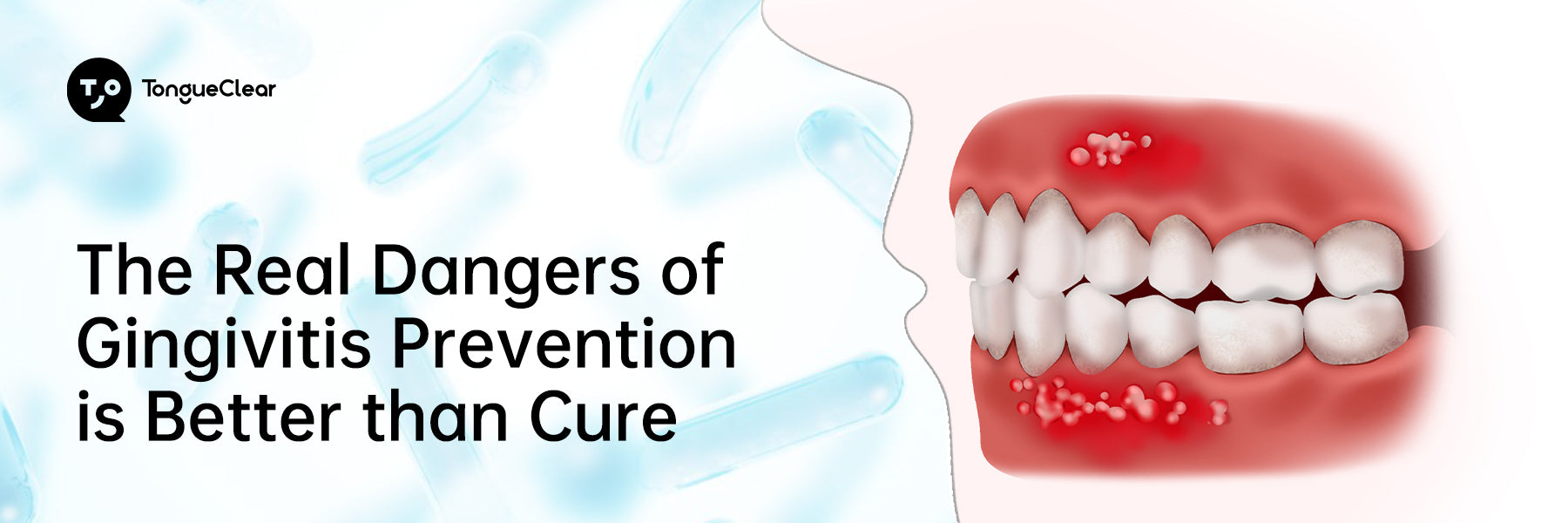
The Real Dangers of Gingivitis: Prevention is Better than Cure
Gingivitis is a common gum disease and the early stage of periodontal disease. It can cause irritation, redness, swelling, and bleeding of the gums (the tissue surrounding the base of the teeth), and if left untreated, it can progress to periodontitis and tooth loss. According to the World Health Organization's 2022 Global Oral Health Status Report, 3.5 billion people worldwide suffer from oral diseases, with gingivitis being one of the most common. This has become a global issue and can lead to serious health complications. In this blog, we will explore the causes of gingivitis, its real dangers, and why prevention should take precedence over treatment.
Causes of Gingivitis
Gingivitis can be categorized into two types: plaque-induced and non-plaque-induced. Currently, nearly all cases of gingivitis are caused by plaque. The most common cause is poor dental and gum care, which leads to the buildup of dental plaque on the tooth surface. If plaque is not promptly removed, it hardens into tartar. The accumulation of bacteria in tartar makes plaque even more difficult to remove, further irritating the gums. The longer plaque and tartar remain on the teeth, the greater the irritation to the gums, leading to swelling and bleeding over time, ultimately causing gingivitis.
Dangers of Gingivitis
Though gingivitis is a common and mild oral disease, if left untreated, it can spread to deeper tissues and bones, becoming more severe periodontitis, which may lead to tooth loss. It can also introduce new health risks, including cognitive decline and dementia.
Bei Wu, Dean and Professor of Global Health at New York University's Rory Meyers College of Nursing, discovered a correlation: the more teeth you lose, the greater the risk of cognitive decline and dementia. In one of the largest studies of its kind, Wu analyzed the health data of 34,000 patients in the U.S. and found that for every tooth lost, the risk of cognitive impairment increased by 1.4%, and the risk of dementia increased by 1.1%.
Overall, compared to those with intact teeth, individuals who lost teeth had a 48% higher risk of cognitive impairment and a 28% higher risk of dementia.
Preventive Measures for Gingivitis
1.Daily Oral Care: Brush your teeth at least twice a day for 2 minutes each time, and use dental floss at least once a day. Flossing helps remove plaque, the main cause of gingivitis.
2.Comprehensive Oral Cleaning: In addition to cleaning the teeth and gums, the entire oral cavity should be cleaned. Use products like oral airbag cleaner or oral finger wipes that are gentle on the oral mucosal to scientifically remove bacterial biofilm and maintain a healthy oral environment, better preventing oral diseases.
3.Healthy Diet and Lifestyle Habits: A balanced diet rich in vitamins and minerals promotes gum health. Avoid excessive sugar intake, as sugar leads to plaque buildup. Smokers should also quit, as smoking weakens the immune system, making it harder to fight off gum infections.
4.Regular Dental Check-ups: Professional cleanings and check-ups every 6 to 12 months can help detect early signs of gum disease and allow for timely prevention and treatment.
Gingivitis may have minimal impact on your life and health initially, but the serious health issues it can lead to should not be overlooked. By taking preventive measures early, you can protect your oral health and overall well-being.
Share





















